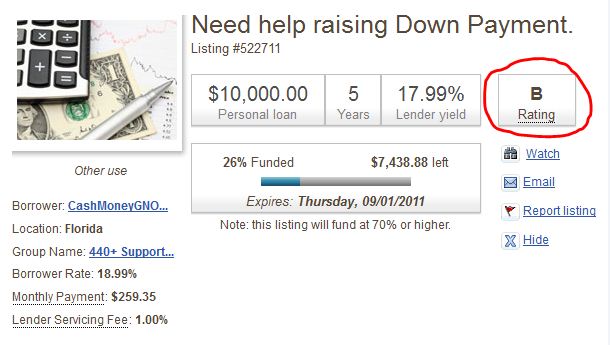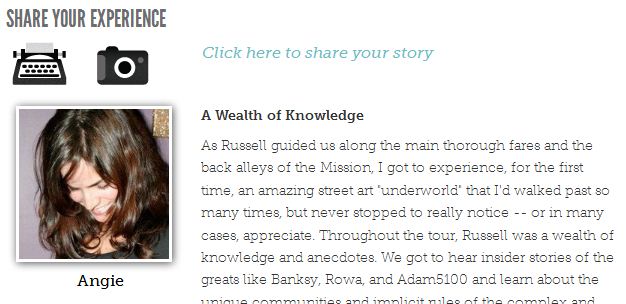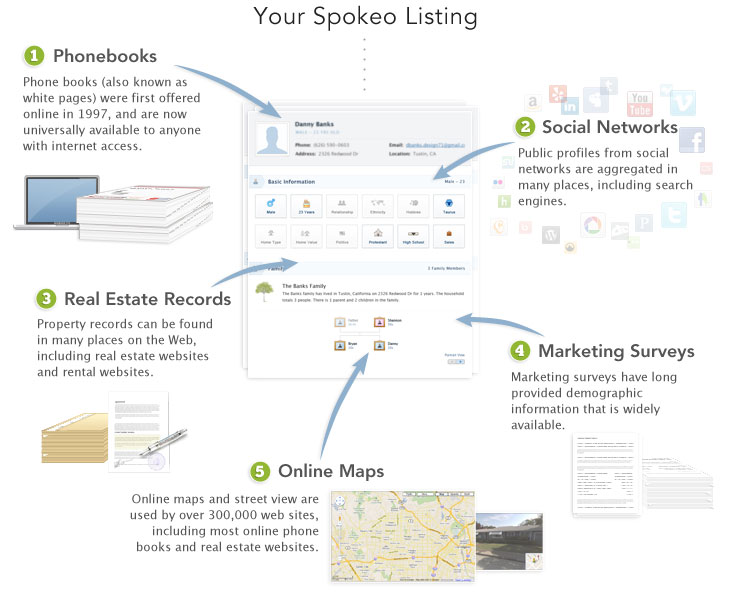The Fall of Internet Privacy
This is the information age. If you have access to an internet connection today, you have access to the all the information learned from every college degree that existed 25 years ago. But the next step is one that makes some people a little uncomfortable: accessing information about individuals.
Our lives are based on personal, trust-based interactions with many people. Whether you are buying a used car, hiring a baby-sitter, or renting out your basement apartment, you are always asking yourself “Can I trust this person”. People gain trust by building up a reputation of trust through personal interactions, but this can take a lot of effort and time that we don’t have.
You may not be aware of it, but person to person interactions happen everyday online between complete strangers. The only way this works is because people are allowed to build up an online “reputation of trust”. Consider the following examples:
1. Ebay.com

Person to person sale for used goods… kind of like an online garage sale. Users know that sellers are trustworthy because previous buyers rate their experience with them out of 5 stars. The more ratings and stars they have, the more you can trust that they won’t run off with your money.
2. Airbnb.com

A site allowing normal people to offer up rooms in their homes as a mini bed-and-breakfast where a traveler can spend the night. User ratings and recommendations from Facebook friends help you know that you can trust the person who is opening up their home to you.
3. Prosper.com

A site for person-to-person money lending which allows both parties to get a better interest rate than the one at the bank. Prosper keeps track of payment history on users and gives them a credit rating, so you know who is most likely to pay you back completely and on time.
4. Vayable.com

A community where individuals offer to give you an exciting experience for a small price, like a tour of San Francisco by motorcycle, or enjoying the best tastes of Chinatown in NYC. People who have had the experience vote if the loved it and share a blurb about their experience, letting you know that it is safe and enjoyable.
These types of services are popping up all over because personal transactions become much cheaper when you take out the middleman of big business (banks, used bookstores, pawn shops, etc). And with them comes the reality that anyone who participates is creating a public record of their reputation on the internet. Look at the world that businesses are in. They live and die on their reputations, and their reputations are public (if you don’t believe me, do a Google search for “APX alarm complaints”. Can you guess why APX redesigned their entire brand and renamed the company Vivint?.
If anyone has a bad experience with a company, it goes online and the world will know about it. There is no “privacy” in the world of business. Any unethical practices *will *eventually be found out (Enron, anyone?). Now that personal interactions are going online can we expect to demand more privacy than businesses? I don’t think so. People need to know if you can be trusted especially as they do business with you (remember the example of the babysitter). Person-to-person business is going online so we are too. The free market always drives for methods that are better, faster, and stronger, and it will not tolerate the wasted time and energy it takes for us to build a reputation with every person we interact with.
Consider the new company Social Intelligence. This company provides an interesting service: they help employers do a background check on job applicants by scanning the internet for everything on that individual. Do you think those Facebook photos of you and your buddies doing a drunk polar-bear-skinny-dip into a glacial lake are funny? Your future employer won’t (and then they will cease to be your future employer). This article by the Washington Post describes the investigation and how it can bite you just as it did Matt Honan who tested the service and flunked it (as he explains here in his Gizmodo article).
And it doesn’t stop there. Everybody is glancing at your Facebook profile, including college admissions officers, potential employers, future business partners, coaches, teachers, and more. Maybe you think that you have been extra careful and nobody can find out anything about you online. I am sorry to break it to you but you are wrong. Lets perform an experiment: go to spokeo.com, type in your name, and hit enter. Scary, isn’t it. The fact is that everything on Spokeo is public information. Spokeo has effectively built a “search engine for people”. Even removing yourself from Spokeo’s listings is a practice in futility. As their privacy policy describes, you may remove your listing but all your public information is still somewhere online, waiting for the next website to gather it together. Once your information is online it stays there.
Every time you are tagged in a Facebook photo, every time you update your status, every time you post something on Twitter, it is archived away like a rich personal history. If you are like most Facebook users, every one of you Facebook statuses goes out into cyberspace and is findable by anyone on the planet (as demonstrated rather bluntly by the guys at openbook). Even Google+ which knocks Facebook’s socks off with its sophisticated privacy and filtering features requires users to sign up under their real identity… no pseudonyms here. And it isn’t just the social networks. Phonebooks, public listings, maps, real estate records, marketing surveys, and more documents are uploaded every day. And this is just the tip of the iceberg. No matter how stringent you are about your privacy settings, you cannot hide from the rising tide of public, private, information.

Do you see where this is going? All it will take is someone who can gather all this information together, including your online “reputation”, and there will be a searchable and complete digital representation of who you really are. People will then be able to see if they can trust you through a quick internet search.
Some people are fearful and outraged, demanding that legislation must solve the problem. They are claiming a new fundamental human right: The right to be forgotten. Maybe their fears are warranted. Just as no unethical business can prosper under the wary eye of the information seeking public, it is only a matter of time until unethical individuals will likewise have nowhere to hide. You can already do a simple internet search and locate all the registered sex offenders in your neighborhood (another interesting exercise). What else will we see in the future, when more and more details about our lives become available online? This reminds me of a couple of scriptures:
Doctrine and Covenants 1:3 And the rebellious shall be pierced with much sorrow; for their iniquities shall be spoken upon the housetops, and their secret acts shall be revealed. Luke 12:3 Therefore whatsoever ye have spoken in darkness shall be heard in the light; and that which ye have spoken in the ear in closets shall be proclaimed upon the housetops. Are we now witnessing the fulfillment of prophecy? I’ll let you decide… but the topic begs one last question:
How should we react?
Do we react with a knee-jerk response to live off the grid, motivated by fear? I don’t think so. When has fear ever been a positive force for good in your life? I prefer faith. This is an opportunity for us to be introspective and look at ourselves. If there is anything in our lives that we don’t want public, then we should go to the source and root it our of our lives… not just cover it up. As we live genuine lives of kindness and integrity, we realize that we have nothing to fear. In fact, the world will start to recognize how rare and exceptional those individuals actually are. It has been said that “…a city that is set on an hill cannot be hid” (Matthew 5:14).
It is becoming more true now than ever before.